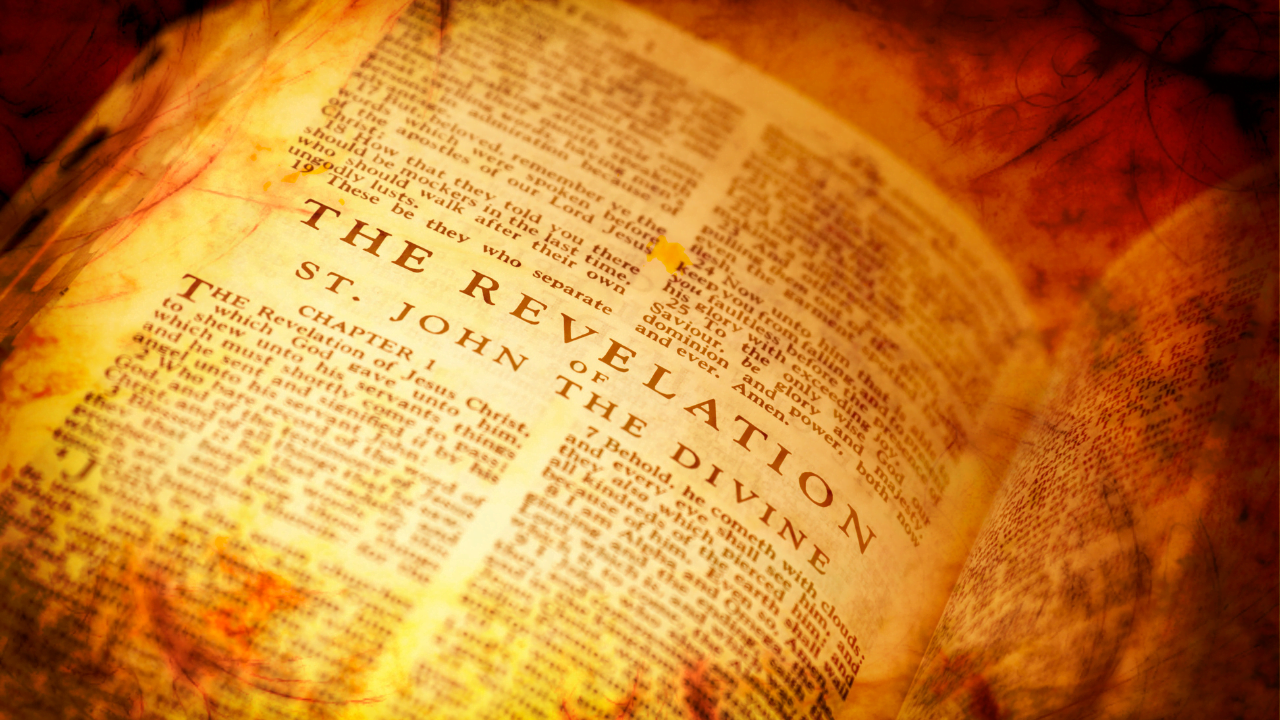No products in the cart.
The Role of Christian Symbols in Personal Spiritual Transformation
This post contains affiliate links.
Greetings to all my fellow worshippers! We will deeply examine the influence that Christian symbols have on our spiritual development today. We are deeply impacted by these religiously themed designs, which strengthen our relationship with God and remind us of our most beloved values.
Christian symbols have a rich history, spanning centuries of faith and devotion. Today, they manifest in various forms, from religious art to intricate jewelry. They serve as constant reminders of our faith and significantly guide us on our spiritual journey.
Join us as we delve into the power of Christian symbols in personal faith and explore the profound symbolism they hold. From the Alpha and Omega to the Anchor, the Angel to the Butterfly, and the Daisy to the Descending Dove, each symbol carries its unique meaning and contributes to our transformation.
Let us also uncover the symbolism behind Christian icons such as the Fleur-de-lis, the Heart, the Ichthus, the Latin Cross, the Nail, the Star of David, and the Tree of Life. Each icon represents deeper truths and embodies the essence of our Christian beliefs.
As we explore the biblical significance of these symbols, we will discover how the Word of God embraces them as metaphors for spiritual growth and transformation. Fire, hammer, mirror, seed, laver, lamp, rain, snow, sword, gold, and food serve as powerful symbols that guide us toward a closer relationship with God.
Within Christian Spirituality, personal growth and transformation are fundamental aspects. We will delve into the intricate connection between Christian Spirituality and personal development, examining how it nurtures our body, mind, and spirit, fostering a holistic approach to spiritual growth.
In contrast, we will also evaluate self-help spirituality in light of Christian Spirituality and biblical constructs. While the self-help literature that often incorporates spirituality can offer valuable insights, it is essential to discern the underlying beliefs and ensure they align with our Christian principles.
So, dear friends, join us on this transformative journey as we explore the role of Christian symbols in personal spiritual transformation. By embracing these powerful symbols and the guidance of Christian Spirituality, we can embark on a path of personal growth, deepening our connection with God and experiencing profound spiritual transformation.
The Power of Christian Symbols in Personal Faith
Christian symbols hold deep meaning in personal faith, as powerful reminders of our cherished beliefs and connecting us to God. Let’s explore some of these symbols and their significance:
Alpha and Omega
The Alpha and Omega represent Jesus as the beginning and the end, emphasizing His eternal nature and divine authority.
Anchor
The Anchor symbolizes hope and steadfastness in our faith, reminding us to remain firm and secure in God’s promises.
Angel
The Angel is a celestial messenger from God who brings news and protection. Their presence signifies God’s divine guidance and intervention in our lives.
Butterfly
The Butterfly serves as a symbol of resurrection and Christ’s victory over death. It represents transformation and the new life we have in Him.
Daisy
The Daisy symbolizes innocence and humility. It reminds us to approach our faith with a pure heart and humility.
Descending Dove
The Descending Dove symbolizes the Holy Spirit, representing purity, peace, and reconciliation. The presence of the Dove signifies the Spirit’s work in our lives, guiding and empowering us.
These Christian symbols hold immense significance in our personal faith journey, inviting us to reflect on the central beliefs of our religion and strengthen our connection with God.
The Symbolism of Christian Icons
Christian icons hold significant symbolism, conveying profound messages of faith and spiritual significance. These iconic symbols are deeply embedded in Christian culture and hold immense value for believers worldwide. Let us explore the symbolism behind some of these revered Christian icons:
Fleur-de-lis
The Fleur-de-lis is a symbol known for its elegance and beauty. Christian symbolism represents the resurrection of Jesus Christ and the Holy Trinity. It serves as a reminder of the triumphant power of Christ’s resurrection and the divine unity of the Father, Son, and Holy Spirit.
Heart
The Heart symbolizes God’s infinite love, compassion, and the essence of humanity. It represents the divine love that flows through believers, calling them to emulate God’s love in their relationships with others. The Heart signifies acts of kindness and charity and embodies Christian virtues.
Ichthus
The Ichthus, or fish, is a widely recognized symbol of Christianity. Derived from the Greek word for “fish,” it holds historical and biblical significance. This symbol represents Jesus Christ as the divine Savior and invites believers to embody His teachings daily. It has long been associated with the early Christian community.
Latin Cross
The Latin Cross is the most universally recognized symbol of Christianity. It is a solemn reminder of Jesus Christ’s crucifixion and sacrifice for humanity’s salvation. This cross symbolizes redemption, forgiveness, and the hope of eternal life through faith in Christ.
Nail
The Nail symbolizes Christ’s love and sacrifice on the cross. It signifies the physical suffering endured by Jesus during the crucifixion and serves as a poignant reminder of the immense love that motivated His selfless act. The Nail evokes a deep gratitude and reverence for Christ’s redemptive work.
Star of David
The Star of David, while not explicitly mentioned in the Bible, holds significance for both Jews and Christians. It symbolizes faith and hope, representing the connection between God and His chosen people. For Christians, it may also symbolize the lineage of Jesus Christ, who was born into the Davidic line.
Tree of Life
The Tree of Life is a powerful symbol of eternal life, healing, and growth. It traces its roots back to the book of Genesis and serves as a reminder of mankind’s connection with God. Representing spiritual nourishment and flourishing, the Tree of Life inspires believers to seek spiritual growth, restoration, and a deepened relationship with their Creator.
Christian icons hold immense spiritual significance, including the Fleur-de-lis, Heart, Ichthus, il, Star of David, and Tree of Life Latin Cross, Nae. They encapsulate the core beliefs and values of Christianity and serve as powerful reminders of the profound mysteries of faith and God’s unending love for His people.
Biblical Significance of Christian Symbols
Christian symbols hold deep biblical significance, as they are rooted in the Word of God found in the Bible. These symbols are mentioned in various passages, each carrying meaning and crucial to personal spiritual transformation.
1. Fire
Fire is a powerful symbol that represents purification and the presence of God. It signifies His holiness, refining and purging away impurities and imparting wisdom and illumination.
2. Hammer
The hammer symbolizes the transformative power of God’s Word. It represents the Word’s ability to break down hardened hearts, demolish strongholds, and rebuild lives.
3. Mirror
The mirror symbolizes self-reflection and introspection through the Word of God. It allows individuals to see their true selves and align their lives with God’s truth.
4. Seed
Seeds represent the Word of God planted in the hearts of believers. As seeds grow into flourishing plants, the Word takes root in people’s lives, bearing fruit and transforming them.
5. Laver
The laver symbolizes cleansing and purification through the Word. It represents the washing away of sins and the sanctification process in the life of a believer.
6. Lamp
A lamp represents God’s guidance and illumination through His Word. It dispels darkness, reveals truth, and directs the path of those who seek Him.
7. Rain and Snow
Rain and snow symbolize the refreshing and nourishing power of God’s Word. Just as rain and snow bring life to the earth, the Word brings spiritual growth and renewal to the soul.
8. Sword
The sword symbolizes the Word of God as a weapon against spiritual battles. It represents the authority, power, and truth found in Scripture.
9. Gold
Gold symbolizes the divine nature of the Word. It represents its incorruptibility, purity, and tremendous value in the lives of believers.
10. Food
Food represents the nourishment and sustenance provided by the Word of God. Just as physical food is essential for the body, the Word is essential for spiritual growth and life.
These biblical symbols serve as reminders of God’s power, presence, and transformative work in the lives of believers. Incorporating them into our spiritual journey can deepen our understanding of Scripture and foster personal spiritual growth.
Christian Spirituality and Personal Growth
Christian Spirituality plays a significant role in personal growth, transformation, and the overall experience of individuals. It encompasses the holistic development of the body, mind, and spirit, fostering a deeper connection with God. Through Christian Spirituality, we are encouraged to seek personal growth in alignment with biblical principles, allowing us to experience a profound transformation in our lives.
The Development of the Body, Mind, and Spirit
- The body: Christian Spirituality recognizes that our physical bodies are a gift from God, and nurturing them is essential for personal growth. It encourages healthy habits, self-care, and stewardship of our bodies as temples of the Holy Spirit.
- The mind: Christian Spirituality emphasizes the importance of renewing our minds through the study of Scripture, prayer, and meditation. It encourages us to cultivate a positive mindset, aligning our thoughts with God’s truth and seeking wisdom and understanding.
- The spirit: Christian Spirituality focuses on nurturing our relationship with the Holy Spirit, allowing Him to guide and transform us from within. It encourages practices such as worship, prayer, and seeking spiritual guidance to deepen our connection and experience personal growth.
The Importance of the Holy Spirit’s Work
In Christian Spirituality, the Holy Spirit catalyzes personal growth and transformation. Through the Holy Spirit’s work within us, we are empowered to overcome challenges, develop spiritual maturity, and experience genuine transformation. His guidance and presence in our lives lead us on a path of growth and conformity to the image of Christ.
By embracing Christian Spirituality and aligning our personal growth with biblical principles, we embark on a transformative journey of deepening our connection with God, nurturing our body, mind, and spirit, and experiencing personal growth that brings us closer to the person God created us to be.
Evaluating Self-Help Spirituality in Light of Christian Spirituality
Self-help spirituality has gained significant popularity in recent years, offering individuals various approaches to personal growth and transformation. However, evaluating how these self-help practices align with Christian Spirituality and biblical constructs is essential.
Self-help spirituality often incorporates elements from New Age spirituality, which may conflict with Christian beliefs and teachings. While it acknowledges the importance of personal growth and transformation, its understanding may differ from the perspective of Christian Spirituality.
In Christian Spirituality, personal growth and transformation are deeply intertwined with one’s relationship with God. It goes beyond the idea of self-improvement and emphasizes the role of the Holy Spirit in guiding individuals toward spiritual maturity and conformity to the teachings of Jesus.
Understanding the Role of Body and Mind
In self-help spirituality, personal growth often focuses on the body and mind as critical components. While these aspects are also essential in Christian Spirituality, their interpretation holds a different significance.
Christian Spirituality views the body as a temple of the Holy Spirit and emphasizes honoring God with our physical actions and well-being. This includes maintaining healthy lifestyles and engaging in practices that nurture the body.
Similarly, the mind in Christian Spirituality is seen as an arena for thoughts and beliefs to be transformed by the renewing power of the Holy Spirit. It encourages believers to align their thinking with biblical truths and to cultivate a Christ-centered mindset.
Discerning Biblical Constructs
When evaluating self-help spirituality in light of Christian Spirituality, it is crucial to discern the underlying biblical constructs. Christian Spirituality finds its foundation in the teachings of the Bible and strives to align personal growth and transformation with these principles.
By exploring the Scriptures and seeking guidance from trusted spiritual leaders, we can discern whether the self-help practices we encounter align with biblical truths and contribute to a deeper connection with God.
Continuing the Journey of Personal Spiritual Growth
As we navigate the realm of self-help spirituality, let us stay rooted in Christian Spirituality, drawing wisdom from biblical teachings and relying on the Holy Spirit to guide our personal growth and transformation. By doing so, we can confidently pursue a journey that aligns with our values and beliefs.
Conclusion
In conclusion, Christian symbols play a crucial role in personal spiritual transformation. They are potent reminders of our cherished beliefs and facilitate a deeper connection with God. Whether religious art or faith-inspired designs, these symbols can touch our hearts and inspire us spiritually.
Christian Spirituality provides a comprehensive framework for personal growth and development, aligning with biblical constructs. It emphasizes the importance of nurturing our body, mind, and spirit while maintaining a solid connection with God. By embracing Christian symbols and following the guidance of Christian Spirituality, we embark on a transformative journey that leads to personal spiritual growth.
While self-help literature incorporating spirituality can offer valuable insights, it is essential to discern and align the underlying beliefs with Christian principles. By being vigilant and discerning consumers of self-help literature, we ensure that our growth journey remains grounded in our faith and line with biblical teachings.
By incorporating Christian symbols into our daily lives and embracing the guidance of Christian Spirituality, we open ourselves up to a world of personal spiritual transformation. This transformative journey deepens our connection with God and enables us to grow personally and experience true fulfillment and purpose.
FAQ
What role do Christian symbols play in personal spiritual transformation?
Christian symbols serve as reminders of cherished beliefs and foster a deeper connection with God, playing a vital role in personal spiritual transformation.
What are some examples of Christian symbols that are commonly used?
Some examples of Christian symbols include the Alpha and Omega, Anchor, Angel, Butterfly, Daisy, and Descending Dove.
What do these Christian symbols represent?
The Alpha and Omega represent Jesus as the beginning and the end, while the Anchor symbolizes hope and steadfastness. The Angel is a messenger from God who brings news and protection. The Butterfly serves as a symbol of resurrection and Christ’s victory over death. The Daisy represents innocence and humility, and the Descending Dove symbolizes purity, peace, and reconciliation through the Holy Spirit.
What is the symbolism behind Christian icons?
Christian icons such as the Fleur-de-lis, Heart, Ichthus, Latin Cross, Nail, Star of David, and Tree of Life hold significant symbolism. The Fleur-de-lis represents the resurrection and the Holy Trinity. The Heart symbolizes God’s love, humanity, and charity. The Ichthus, or fish, is a widely recognized symbol of Christianity. The Latin Cross is the universal symbol of Christianity, representing the crucifixion of Jesus. The Nail symbolizes Christ’s love and sacrifice. Although not explicitly mentioned in the Bible, the Star of David holds significance for Jews and Christians. The Tree of Life represents eternal life, healing, and growth.
How are Christian symbols rooted in biblical significance?
As the Word of God, the Bible contains various references to Christian symbols. For example, the Word of God is described as fire, hammer, mirror, seed, laver, lamp, rain, snow, sword, gold, and food. Each symbol carries its meaning and plays a role in personal spiritual transformation.
What is Christian Spirituality, and how does it relate to personal growth?
Christian Spirituality is intrinsically tied to personal growth and plays a significant role in transformation and experience. It encompasses the development of the body, mind, and spirit, fostering a deeper connection with God and aligning personal growth with biblical principles.
How does self-help spirituality differ from Christian Spirituality?
While self-help spirituality has gained popularity, evaluating its alignment with Christian Spirituality and biblical constructs is essential. Self-help spirituality often incorporates New Age elements and lacks a comprehensive understanding of personal growth and transformation in Christian terms. The interpretation of the body and mind in light of Christian Spirituality has a different significance.
What is the significance of embracing Christian symbols and Christian Spirituality for personal spiritual growth?
By embracing Christian symbols and the guidance of Christian Spirituality, individuals can embark on a transformative journey of personal spiritual growth. Christian symbols serve as reminders of cherished beliefs, while Christian Spirituality provides a framework for personal growth that aligns with biblical constructs.
This post contains affiliate links.











